Artificial intelligence (AI) may have been the buzzword of 2023, but the burgeoning tech is here to stay.
This year, brands from all corners of the fashion ecosystem employed machine learning systems to fortify their roadmaps, from utilizing AI to streamline their supply chains to exercising its potential as creative design assistant.
In the next three to five years, generative AI could add up to $275 billion to the apparel, fashion and luxury sectors’ profits, according to consultancy firm McKinsey.
Fashion’s bigshots have caught on. As documented in Jing Daily’s ‘The Future of Generative AI For Luxury Brands’ report, the tech has already seen an unprecedented uptick in usage since the start of the year, contributing to its estimated market value of $42.6 billion by the end of 2023.
Below, we break down the brands that deployed AI this year as they race to the fore of fashion’s next chapter.
As an early adopter of machine learning, Valentino jumped onto fashion’s snowballing AI trend back in January with its ‘Essential’ campaign. The images portrayed a hybrid world between human and machine, with each image created by running prompts through a generative text-to-image system, executed by AI specialist Vittorio Maria del Masso.
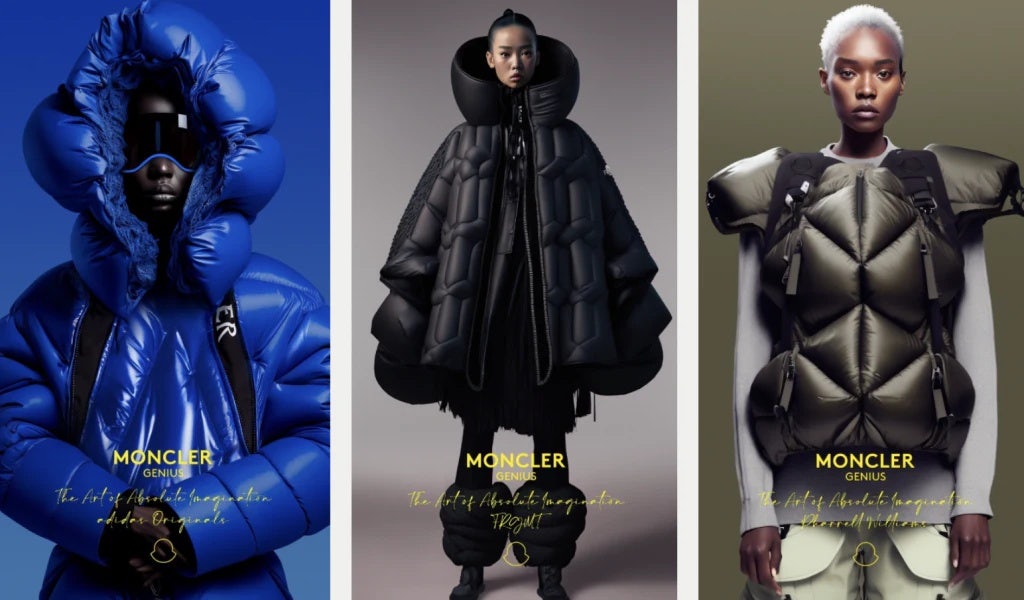
Down jacket aficionado Moncler teamed up with Maison Meta in February on the brand’s first AI-powered campaign. As part of its curatorial ‘Genius’ division, the duo released a collection of machine generated images to coincide with Moncler’s London Fashion Week spectacle, which saw the likes of Pharrell Williams, Mercedes Benz, and Rick Owens reimagine the iconic puffer.

G Star Raw’s tech-powered campaign demonstrated how a fabric as simple and ubiquitous as denim could be reimagined through the lens of AI. The brand released its first denim couture piece designed using the technology in March, which was created using generative platform Midjourney, before being brought to life by the label’s in-house atelier in Amsterdam.

Levi’s took the potential of AI one step further in March by using it to create a series of inclusive digital models for its e-commerce site. The project, while innovative in its intention, received a huge backlash from the public after critics claimed that the brand’s use of AI was putting human models out of work and cutting financial corners.
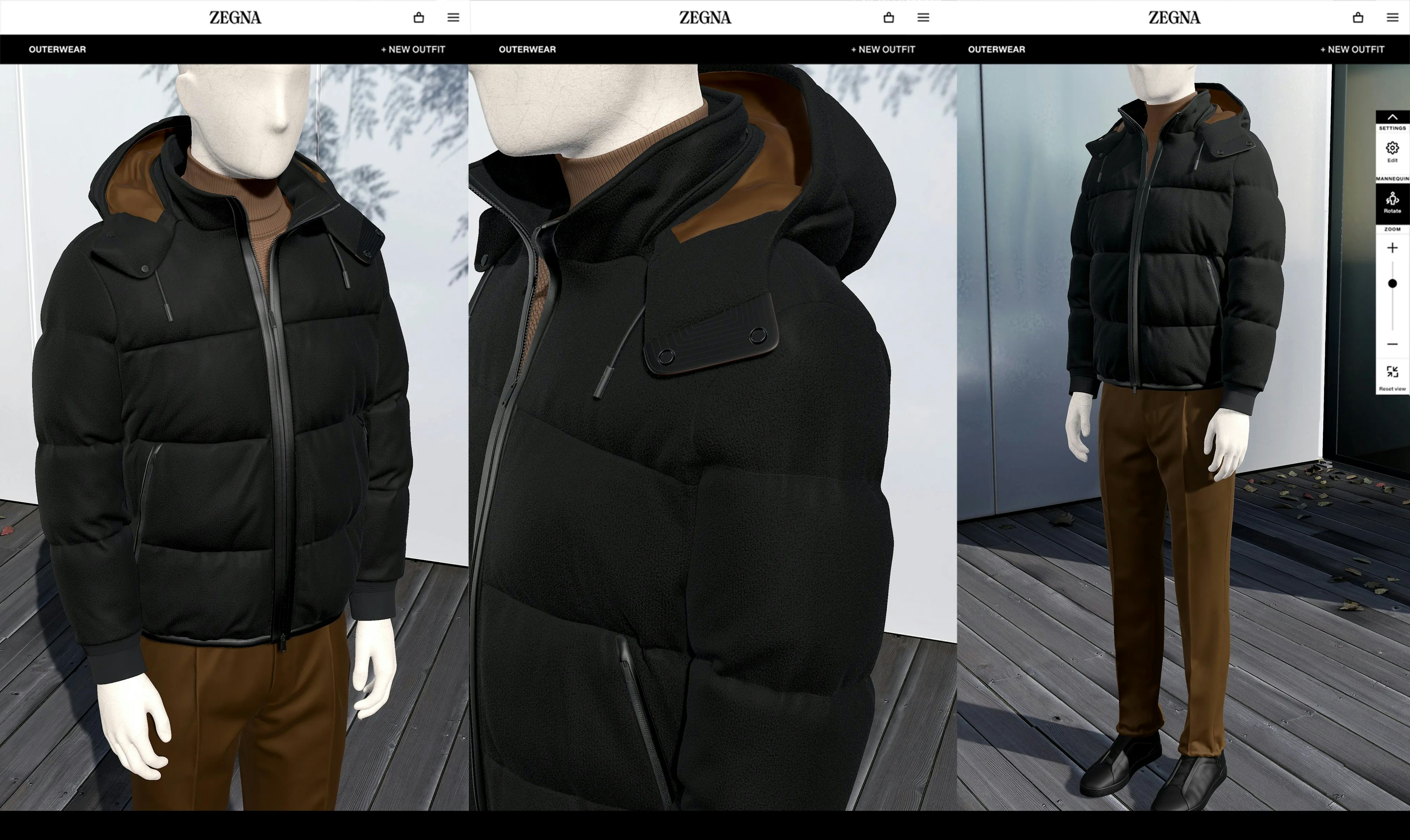
Zegna announced the release of the Zegna X configurator in March, an AI-powered shopping customization tool that clients can use to tailor products to any combination of colors and fabrics they like. The system was initially available on an appointment-only basis at Zegna’s Milan Montenapoleone flagship store, and is set to be deployed in select stores worldwide.

Fighting to overtake competitors Tapestry and LVMH in the tech race, Kering introduced Madeline, an AI-powered personal shopper that leverages OpenAI’s ChatGPT, in April. The assistant resides on the conglomerate’s KNXT platform, which gives shoppers access to various Kering subsidiaries, including Gucci, Bottega Veneta, Alexander McQueen, Balenciaga, and others.
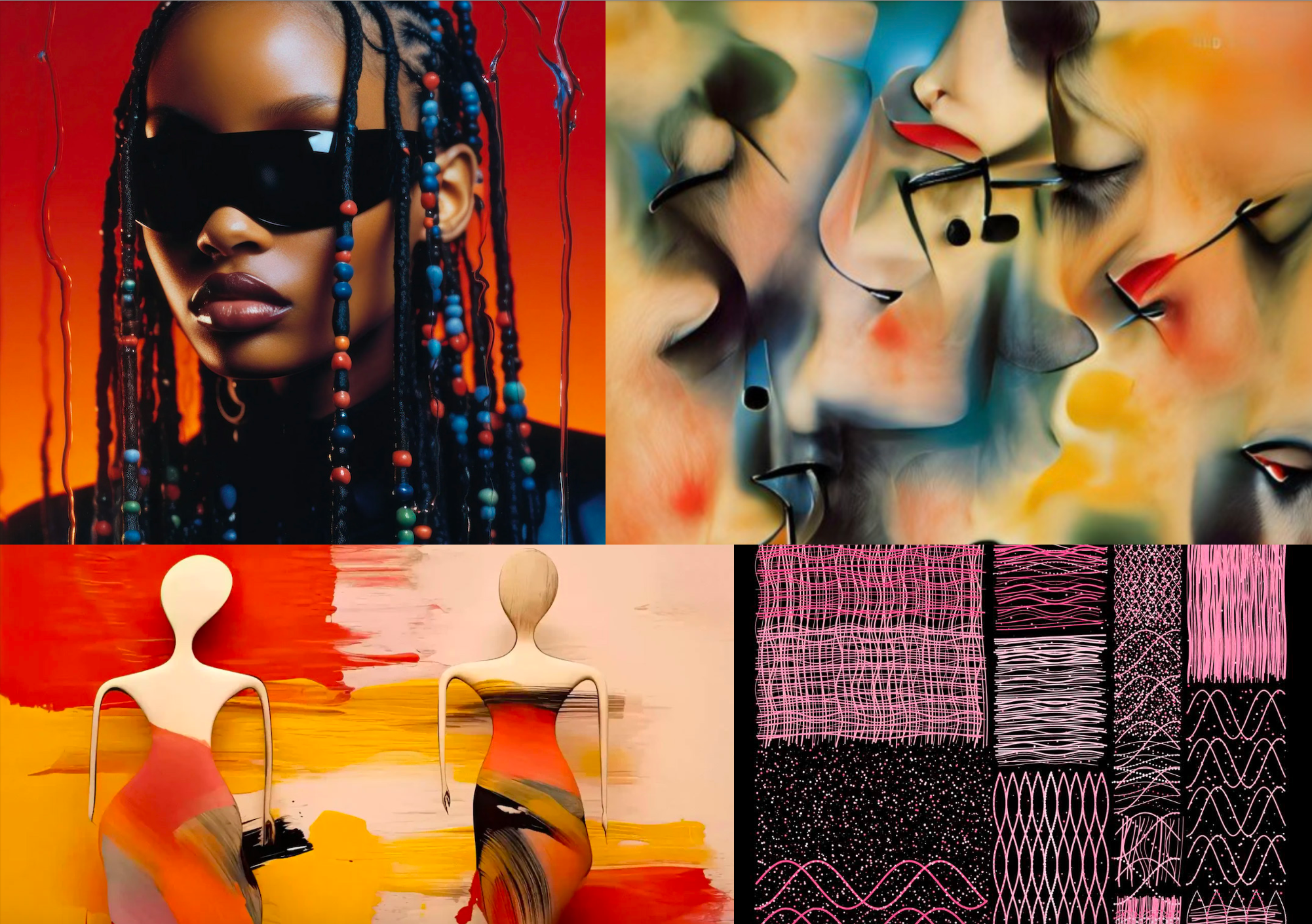
An early proponent of all things NFT and Web3, Gucci joined in the cultural conversation on generative AI in July, after teaming up with Christie’s digital art platform Christie’s 3.0. The house commissioned 21 prolific digital artists, including Claire Silver, Emi Kusano and Tyler Hobbs, to create their own AI-informed NFTs, which were later put up for auction for between $1,800 to $417,000. The sale made headlines and generated a positive public response, so much so that the brand announced its second iteration of the partnership, featuring works from nine new digital artists, last month.
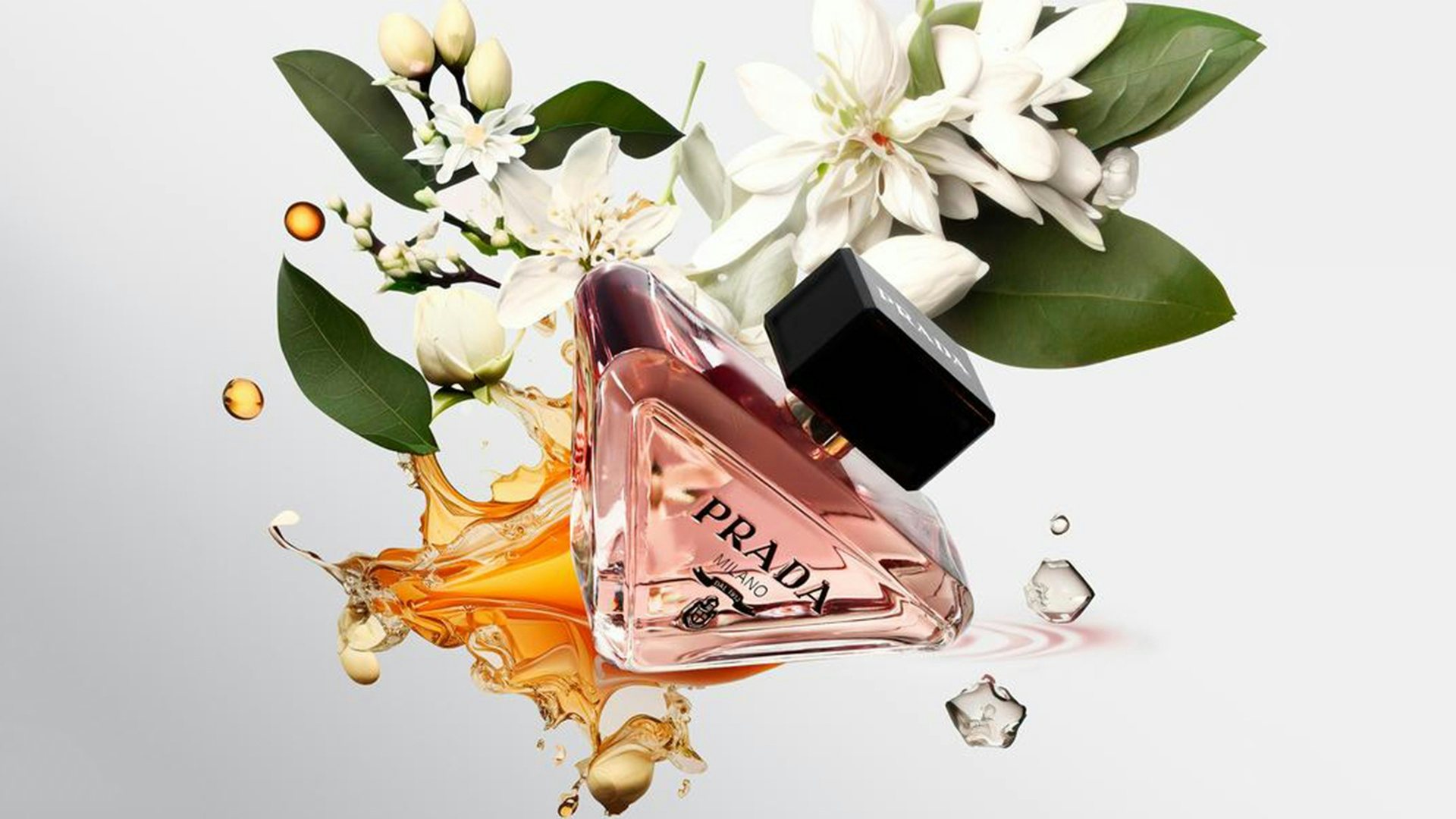
A luxury house that hasn’t shied away from emerging tech, Prada’s fragrance division released its own AI-generated campaign in April for its Prada Paradoxe fragrance range. But it didn’t stop there. The maison’s newly developed Prada Beauty line, which champions itself as a premium, tech-driven segment, launched its inaugural collection of makeup products, including AI-derived shades of foundation, in August.

Ganni’s AI-enhanced runway kicked off what would be a season dedicated to generative technology during September’s fashion weeks. For the cult label’s Spring/Summer 2024 collection, the brand invited guests to immerse themselves in a “kinder, more thoughtful” version of AI by employing AI artist Cecilie Waagner Falkenstrøm to design five AI-powered ‘talking trees.’ The design team also used ChatGPT to provide initial inspiration for the collection.

New York Fashion Week’s calendar followed suit. Independent label Collina Strada harnessed the creative prowess of AI to reimagine the brand’s trademark aesthetic. The final results were later shown on the runway in the form of lace-trimmed blouses, patterned trousers and chunky statement accessories.

This year, tech-in-fashion spearheaders Coperni went all in on AI. In September, the French label launched its AW23 digital film campaign, which uses generative technology to create a continual polymorphic clip that runs for six months straight. The video sifts through 320,000 different versions based on multiple scenarios and looks from Coperni’s AW23 collection. Meanwhile, for its Spring/Summer 2024 lineup, the label also subtly debuted Humane’s inaugural AI pin on its Spring/Summer 2024 runway. The pin is a tech wearable that’s set to disrupt the smartphone industry.

In October, H&M’s Creator Studio invited its shoppers to play fashion designer through its new platform. Powered by generative-AI platform Stable Diffusion, keen creators are able to produce their own professional-standard merchandise on demand through written prompts. The text-to-image results are then later printed onto fabrics.
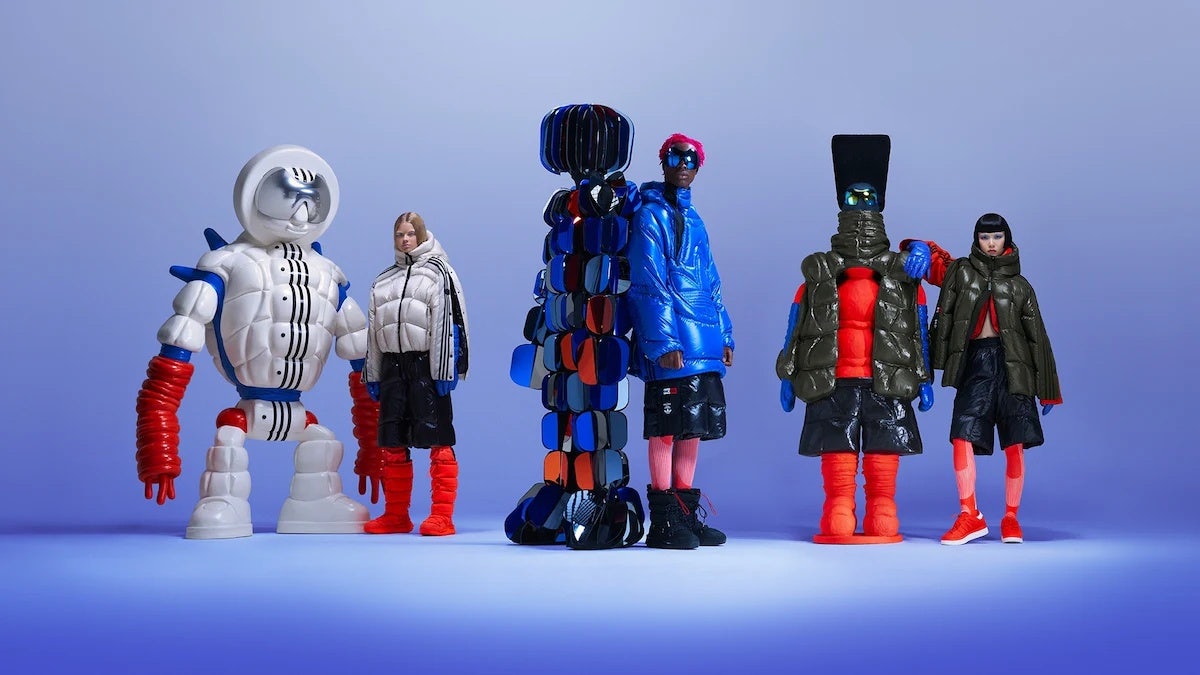
Web3 advocate Adidas’ “The Art of Explorers” campaign employed AI technology to generate a series of new mascots, referred to as “Adventurers,” in October. Created in collaboration with Moncler, the campaign celebrated outdoor discoverers and invited creatives Gary Card, Ibby Njoya, and Kate Tabor to bring the AI characters to life in the form of mixed-media sculptures.

For China’s Singles’ Day retail extravaganza, Coach leveled up its personalization offerings across the mainland with animated cat-themed posters powered by AI technology, inspired by its distinctive brand features. The concept’s novelty factor proved popular, with Valentino, MCM, Ralph Lauren, and Canada Goose also tapping the trend in their Singles’ Day playbooks.
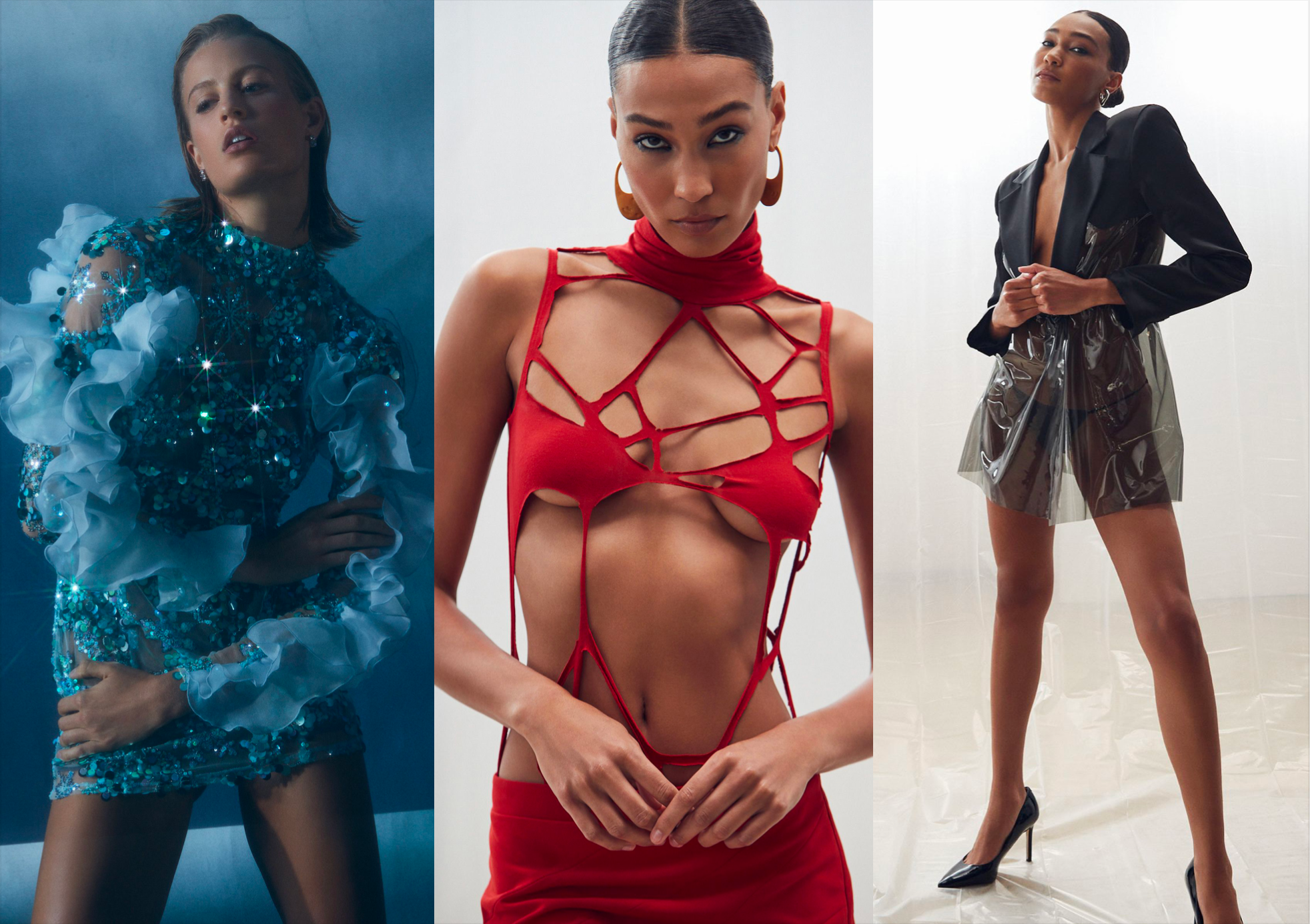
After introducing the world’s first AI-generated billboard campaign for its 20th anniversary in April, American multi-brand retailer Revolve invited winners from April’s debut AI Fashion Week (José Sobral of Paatiff, Matilde Mariano of Molnm, and Opé Majek of Opé) to design their own collections using machine learning. The physical collections were crafted in Revolve’s atelier in Los Angeles and were available to purchase via the company’s fashion e-commerce site this month.
Credit: Source link
